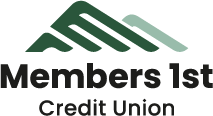
7 Steps to Better Money Management
The following tips are designed to help you manage your money easily and effectively.
1. Calculate your net income.
- Know all your sources of income after deductions like income taxes and 401k contributions are removed. This number ultimately determines what you can spend each month.
2. Create a personal budget.
- There are tons of tools to help you do this, but whichever way you choose, ultimately your budget should help you see exactly where your money is going each month so you aren’t surprised with overdraft fees or running out of money long before your next paycheck. To make sure you’re living within your means, subtract all of your expenses in a month from your take-home pay. If the number is positive, then you’re spending within your means. If it’s negative then you should look at where you can cut spending by assessing needs vs wants.
3. Balance your checkbook (or keep track of your bank statements if you don’t use checks).
- Keeping track of your spending versus your account balance is critical to maintaining a healthy, and positive balance. Visit our article here about how to balance your checkbook for help!
4. Minimize your use of credit cards.
- While credit cards are useful tools to build credit and help out in a financial pinch, they should be used as just that, a tool and not a crutch. Instead of maxing out your credit card limits, try to keep usage at about 30% of your total available credit.
5. Pay down your debt.
- If you have credit card or other debt, pay them down as quickly as possible. There are several different tactics you can use to approach debt pay off, but the easiest are starting either with the highest APR debt to pay down fastest, or the debt with the lowest amount owed to pay off fastest and continuing down the list from there. Check out our debt resolution article here for more tips.
6. Establish Savings.
- Everyone gets in a pinch or an emergency at some point, the key is to have prepared for it so that you don’t end up taking out extra debt or missing other bills when it happens. Check out our simple savings article here.
7. Know your credit history.
- If you’ve had a rough time with your credit score, it can be daunting to look at, but knowing your score is the first step to bettering it! As a Members 1st member, you have free access to your FICO® Score online or through the Members 1st mobile app.
For more money tips and information, visit our news articles for more helpful tips, budgets, blogs, and more.




